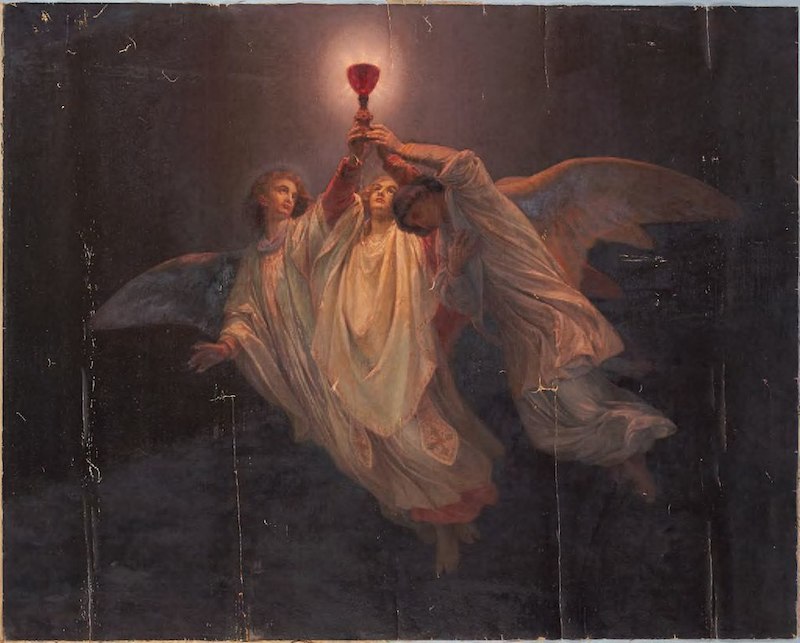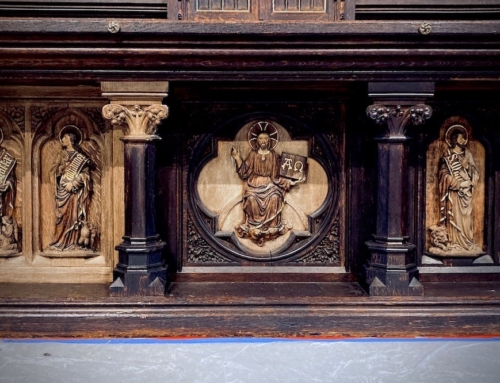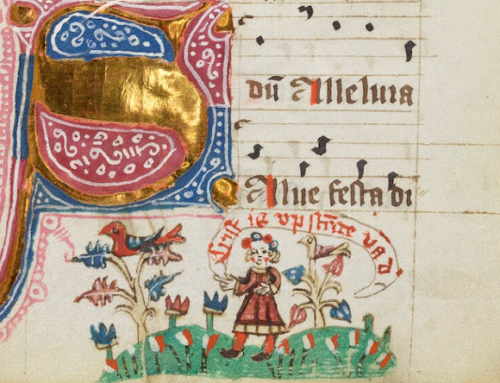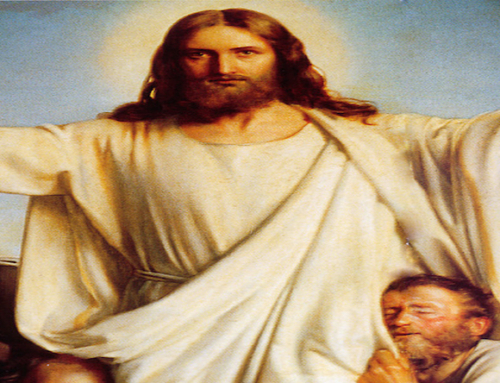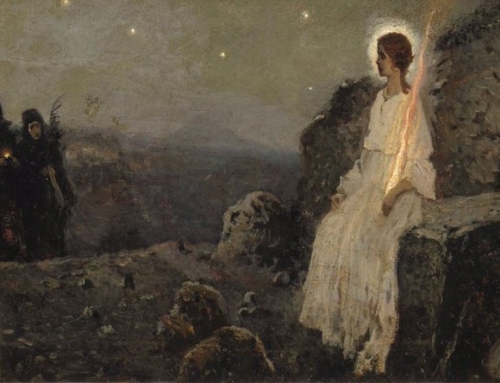In the ancient days of Adam,
the hands of the first man fashioned a cup,
for the Edenic liturgy of Divine Love (Gen 2:15).
Whether made from the heart of the first tree,
Or carved from the bones of the earth,
Or forged by the flames of the Seraphim,
it glistened in the immaculate dawn of the world.
In the frantic haste of exile, Adam brought the cup (Gen 3:23–24),
And gave it to his son Abel,
And it was stained as Abel’s blood soaked through the sack at his side (Gen 4:1–10).
And Adam, weeping, buried his son and washed the cup,
And it passed from each father’s hand unto Noah, son of Lamech (Genesis 5),
And it was not until the heavy gopherwood doors were sealed
that he realized it was not aboard the ark (Gen 6:14–22; 7:1–5).
And there in the dark depths of an rimless sea,
The cup was washed in the deluge of wrath.
And the sea subsided, and the ages passed,
measured by the revolving stars in their course (Gen 7:19).
The calloused hands of a farmer drew it from the muck of his field,
Among the thorns and thistles (Gen 3:18),
But the land became barren with famine,
And the sun-baked earth became a marshland of blood,
watered by war,
And the cup passed from each stranger’s hand unto Melchizedek,
King and high priest of God Most High (Gen 3:18 – 20).
And with it, he gave thanks to God for His salvation,
wrought by the hand of Abram,
An offering of bread and wine,
a holy sacrifice,
a spotless victim (Roman Canon).
But in later years, the sullied hands of a thief stole the cup
and squandered it for filthy lucre
And it passed from each thief’s hand unto the chained hands of Joseph, son of Israel,
when a slave trader had given him to drink from it on their way to Egypt (Gen 37:28).
But the trader sold Joseph and brought the cup back with him over the horizon (Gen 37:36),
And there sold it for a gluttonous feast at the expense of his host in the land of Midian.
And it passed from each father’s hand unto Jethro, priest of Midian,
who gave it in gratitude as the joyful dowry of his daughter (Exod 3:1).
But she and her husband brought it with them back to the land of Egypt,
where the lamentations of a captive people echoed in the heavens.
And God saw his children—and God knew… (Exod 2:23–25).
When the night had come for the salvation marked by the blood of a lamb,
The man, Moses, took the cup and said the blessing,
Blessed are You, Lord our God, King of the Universe,
Who creates the fruit of the vine (Pesach Haggadah).
And they ate in haste, loins girt, sandals on their feet,
For it was the Passover of the Lord (Exod 12:1–13).
And Moses carried the cup all the days of his life,
And Joshua after him drank from it the vintage of victory
in the Land of Israel (Josh 1:1-5).
But after, in the days when every man did what was right in his own eyes (Judg 21:25),
and betrayed the love of God,
the spring sowing wrought a harvest of blood (Judg 2:11–14).
And the cup was plundered by the Jebusites (Josh 15:63)
and lay forgotten until their city was claimed by the Shepherd King of Israel (2 Sam 5:6–7).
And the lips of that royal psalmist drank from it (Ps 23:1),
As did the lips of Uriah’s wife (2 Sam 11),
As did the wise lips of Solomon (1 Kgs 2:1–4),
As did the lips of all his foreign wives (1 Kgs 11:1–4).
And it passed from each king’s hand unto Zedekiah, son of Josiah,
Unto the day when the banners of Nebuchadnezzar were at the gates of Jerusalem (Jer 34:1–2).
In the frantic haste of exile, the cup was abandoned.
and was washed in the deluge of wrath,
and passed out of memory as the streets of the holy city fell silent (Jer 7:34).
The ages passed, measured by the revolving stars in their course.
And the cup remained forgotten
as the Maccabean horns blasted triumphant in the Vale of Jezreel (1 Macc 3:1–9).
And the cup remained forgotten
as the Roman eagle spread its tyrannical pinions over Jerusalem,
where the lamentations of a captive people echoed in the heavens.
And God saw his children—and God knew…
Until the Master’s time was at hand (Matt 26:18),
And he, the Shepherd King of Israel, came to eat the Passover
in a house of a poor man with calloused hands,
Who provided for the Sacred Banquet a cup,
Whether made from the heart of the first tree,
Or carved from the bones of the earth,
Or forged by the flames of the Seraphim.
Then, in the fullness of time (Gal 4:4–5),
When the night had come for the salvation marked by the blood of the Lamb,
A holy sacrifice,
A spotless victim,
Who for our sake paid Adam’s debt to the eternal Father,
and, pouring out his own dear Blood,
wiped clean the record of our ancient sinfulness (Exsultet).
He took this precious chalice (Roman Canon)
in his holy and venerable hands,
and said the blessing,
Blessed are you, Lord our God, King of the Universe,
Who creates the fruit of the vine.
and gave the chalice to his disciples, saying:
TAKE THIS, ALL OF YOU, AND DRINK FROM IT,
FOR THIS IS THE CHALICE OF MY BLOOD,
THE BLOOD OF THE NEW AND ETERNAL COVENANT,
WHICH WILL BE POURED OUT FOR YOU AND FOR MANY
FOR THE FORGIVENESS OF SINS.
DO THIS IN MEMORY OF ME.
✠
Image: Johannes Adam Simon Oertel, The Holy Grail

